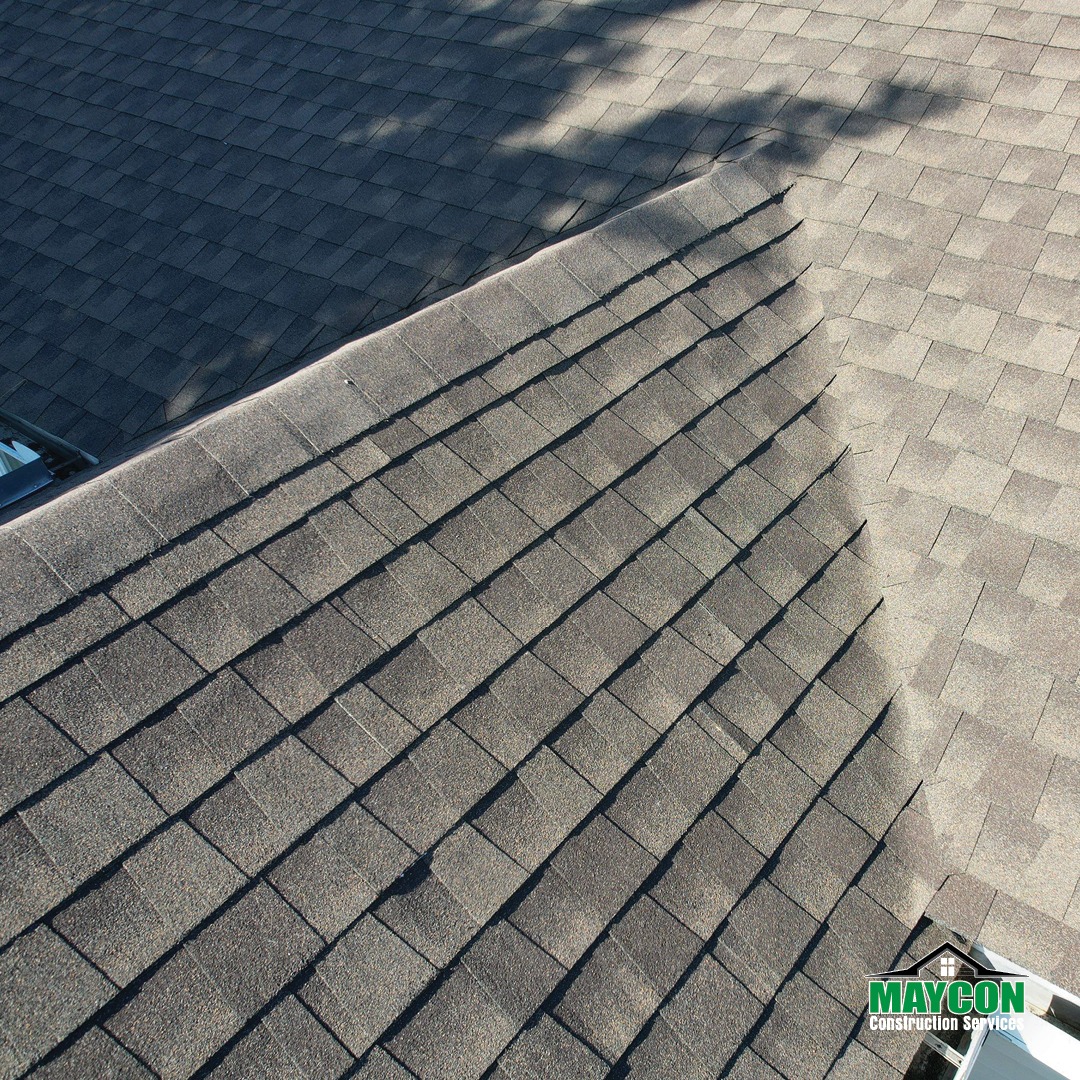Choosing the right roofing material is a big decision, especially when considering how it will perform in your local climate. A roof that works well in one region might not hold up in another. That’s why understanding the key differences between metal and asphalt roofing is crucial for making an informed choice.
At Maycon Construction Services, we help homeowners navigate their options when it’s time for a Roof Replacement. This guide compares how each material performs in different weather conditions to help you find the best fit for your home.
How Climate Affects Your Roof
Your region’s weather patterns play a major role in how well your roofing material will hold up over time. Extreme heat, heavy rainfall, strong winds, hail, and snow can all impact durability and maintenance needs.
Before choosing a material, it’s important to understand how each one reacts to different environmental conditions.
Metal vs. Asphalt: A Climate-Based Comparison
Hot and Sunny Climates
Metal Roofing:
- Reflects sunlight, reducing heat absorption and keeping your home cooler
- Can lower cooling costs by up to 25%
- Resistant to UV damage, preventing fading and cracking
Asphalt Roofing:
- Absorbs heat, making attics and living spaces warmer
- Can break down faster under intense sun exposure
- Prone to thermal expansion and contraction, which can lead to cracking
Best Choice: Metal is ideal for hot climates due to its reflective properties and longevity.
Cold and Snowy Climates
Metal Roofing:
- Sheds snow and ice easily, preventing ice dams
- More resistant to freeze-thaw cycles
- Less likely to suffer water damage from snow buildup
Asphalt Roofing:
- Absorbs some heat, helping snow melt faster
- More prone to ice dams if ventilation isn’t optimal
- May require extra maintenance after heavy snowfall
Best Choice: Metal is better suited for snowy climates since it naturally prevents snow buildup and reduces leak risks.
Rainy and Humid Climates
Metal Roofing:
- Highly resistant to water damage and mold growth
- Does not absorb moisture, reducing the risk of rot
- Can last 40–70 years with minimal maintenance
Asphalt Roofing:
- More susceptible to moisture absorption, leading to algae growth
- Can develop leaks over time if not properly maintained
- Shingle granules may wear down faster in prolonged wet conditions
Best Choice: Metal roofing stands out in wet climates due to its moisture resistance and longevity.
Windy and Storm-Prone Climates
Metal Roofing:
- Designed to withstand winds up to 140 mph
- Less likely to lose panels in severe storms
- Impact-resistant against falling debris
Asphalt Roofing:
- Can be torn off by strong winds, leading to frequent repairs
- More vulnerable to wind uplift if not installed properly
- Susceptible to hail damage, which can cause cracking and leaks
Best Choice: Metal is the better option in storm-prone areas due to its wind resistance and impact durability.
Energy Efficiency and Environmental Impact
Beyond climate performance, it’s important to think about energy efficiency and sustainability when selecting a roofing material.
Energy Efficiency
- Metal roofs reflect solar heat, reducing cooling costs in warm climates.
- Asphalt roofs absorb heat, which can increase air conditioning use in the summer.
- Some metal roofs have specialized coatings that further improve energy savings.
Sustainability
- Metal roofing is often made from recycled materials and can be fully recycled at the end of its life.
- Asphalt shingles contribute to landfill waste, as they are harder to recycle.
Best Choice: Metal roofing is the superior option for homeowners looking for energy savings and eco-friendly materials.
Installation and Maintenance Considerations
Each material comes with its own installation process and upkeep requirements.
Installation
- Metal roofing requires specialized installation and has a higher upfront cost.
- Asphalt roofing is easier and cheaper to install but may need more frequent replacement.
Maintenance
- Metal roofs need occasional inspections for dents or fastener issues, but require minimal upkeep.
- Asphalt shingles may need regular cleaning to prevent moss, algae, and granule loss.
Best Choice: If you prefer low maintenance and long-term durability, metal roofing is the better investment. However, if budget is your main concern, asphalt shingles provide a more affordable initial cost.
Conclusion
The best roofing material for your home depends on your climate, budget, and long-term goals.
- For hot, sunny, rainy, or snowy climates, metal roofing is the best option due to its durability, energy efficiency, and weather resistance.
- For homeowners on a budget or in mild climates, asphalt roofing provides a cost-effective solution with reliable performance and a classic look.
If you’re considering a Roof Replacement and need expert guidance, Maycon Construction Services is here to help you find the perfect roofing solution for your home.
Frequently Asked Questions
Which roofing material lasts longer, metal or asphalt?
Metal roofs last between 40 to 70 years, while asphalt shingles typically last 15 to 30 years.
Is metal roofing noisier than asphalt during storms?
With proper insulation, metal roofs are no louder than asphalt shingles during rain or storms.
Does metal roofing increase home value?
Yes, metal roofs have a higher return on investment due to their longevity and durability.
Which material is better for hurricane-prone areas?
Metal roofing is the better choice for high-wind regions due to its storm resistance.
Can I install solar panels on both types of roofing?
Yes, but metal roofing makes solar panel installation easier and more secure.
Which material is easier to repair?
Asphalt shingles are easier to repair, but they require more frequent maintenance than metal roofing.











 by
by